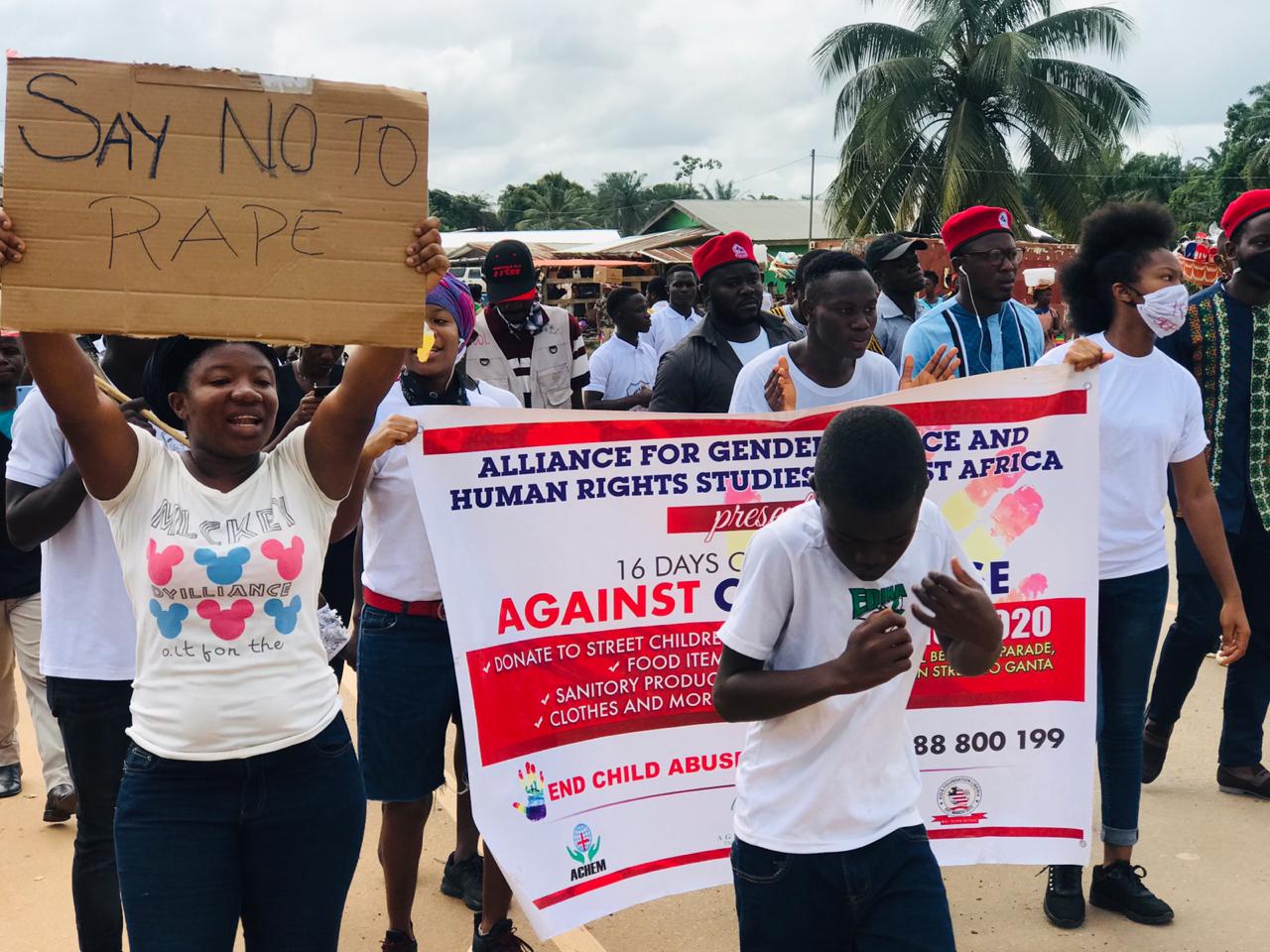Sexual offences and violence against women remain pervasive in the West African country, which in the past has had the distinction of being led by Africa’s first elected female head of state.
I have been working on women’s rights for at least seven years. It has never been easy, but at no time have we been busier than in 2020. We are fighting several other epidemics in the shadow of the Covid-19 pandemic: domestic violence, rape, and other sexual offenses and murders. We are confronting these while at the same time fighting to compel our government to act.

My work has focused mostly in Ganta, a sprawling urban town in northern Liberia, where I grew up. Ganta has not totally left its rural trappings even though it is developing fast. Its population is a mixture of modernizers seeking to upend tradition, particularly practices that undermine human rights, and conservatives determined to preserve old traditions.
I represent the former, and as you might expect, I often come into conflict with the values of the ‘older generation’ who believe that as a young person, I should not speak against sexual and gender-based violence, female genital circumcision, child marriage and rape. I have never faced direct threats to my life for speaking against these practices, but I have been ‘warned’, shamed, harassed, and sometimes pressured into temporary silence.
Where I come from, it is almost a taboo for a girl or woman to report sexual abuse. Those who do so only seek justice, but in most cases end up as a double victim. In addition to the abuse, they are stigmatized and blamed. To avoid stigmatization, many victims live with their pain and grieve silently while their abuser lives freely and continues to abuse others.
Loading...
My organization has been determined to bring abusers to justice and end stigmatization and victim-blaming. To break this culture of silence and give young victims a safe space to speak out, we established human rights clubs in schools and communities. The clubs create awareness about rape and violence against women, and encourage and support victims to seek justice. The results so far have been mixed.
Some victims do initially speak out, but a good number will prefer to resolve the issue in their community rather than going to court. Unfortunately, they are often blamed and shamed when the community gets involved. The prohibitive cost of seeking justice in Liberia discourages victims, and frustrates us all.
So we now focus more on awareness and advocacy, believing that knowledge of the rape law among community members might deter offenders. However, as Covid-19 spreads across Liberia, the government introduced a semi-lockdown and closed schools. While they focused on curtailing the virus, sexual offences surged. The Ministry of Gender reported in July that about 600 cases of rape and sexual offences were reported between January and June 2020 – unreported cases could be five times higher.
We reacted to this news by mobilizing women’s groups across the country and organizing demonstrations to call on the government to take immediate action. I led the campaign in Nimba County, northeastern Liberia. In August, we staged three days of nationwide protests at various government institutions and public places. Our colleagues in Monrovia, Liberia’s capital, staged a protest outside the president’s office.
Our nationwide campaign was successful. The government immediately organized a multi-stakeholder conference on sexual offences, the president declared rape a national emergency and funding was increased to fight violence against women.
But that has not been the end. We still have more to do. Sexual offences and violence against women remain pervasive as many communities do not view these as crimes. Our job is to make them see these as punishable offences under the law. The government, too, needs to be reminded to deliver on its promises.
Our struggle will continue.
– By Abigail Freeman, founder of the Alliance for Gender Justice and Human Rights, an organization that champions women’s rights, promotes gender equality and elevates the voices of women and youth in rural Liberia.
Loading...
